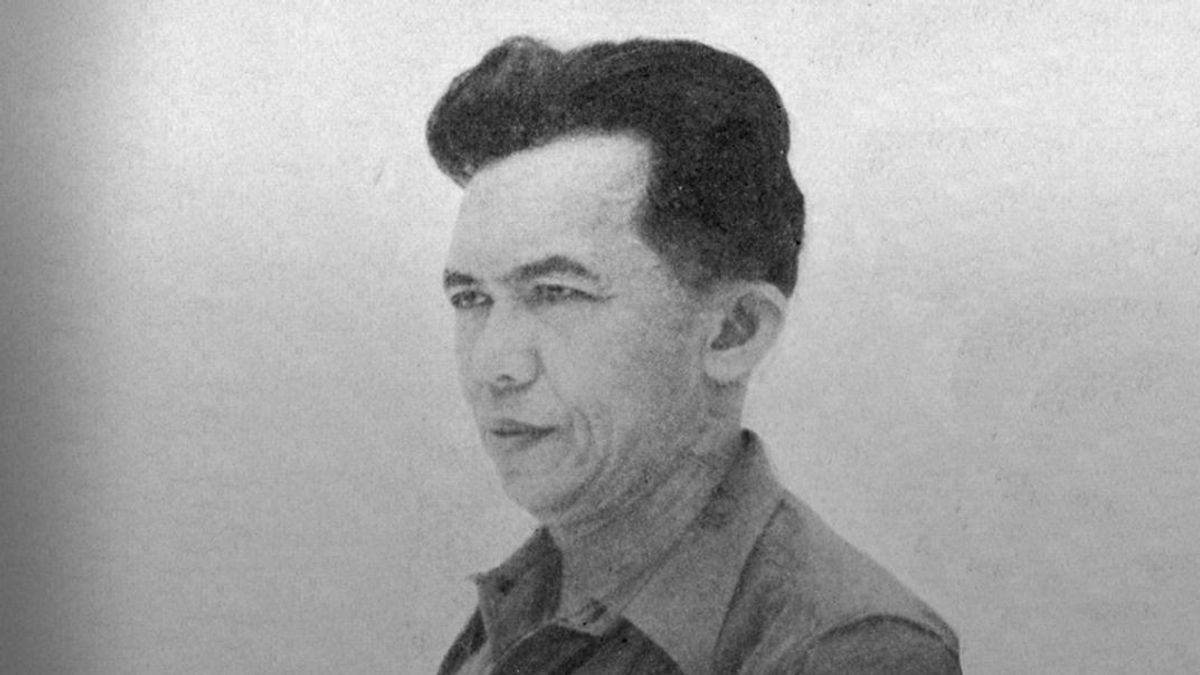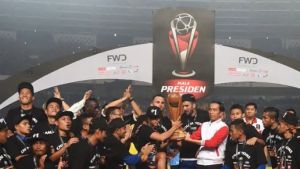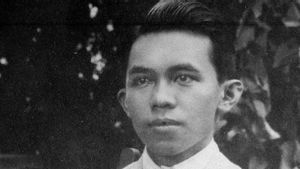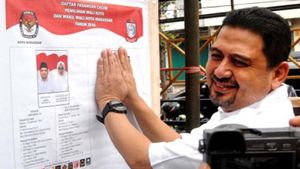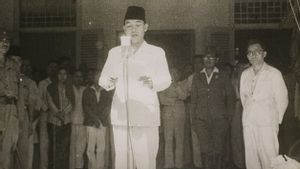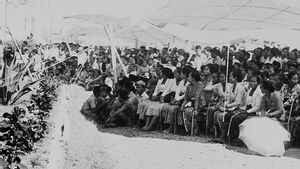JAKARTA - Tan Malaka did not waste the opportunity to gain knowledge in the Netherlands. He also tried to finalize his struggle through educational channels. He came home with a lot of knowledge. He tried to establish a school on the island of Java. People's school, his name,
He also tried to be active in the Indonesian Communist Party (PKI). His activeness made Tan Malaka more sensitive to the suffering of the people. Tan Malaka also dreams of Indonesia becoming a republic. However, his dream is not an ordinary dream. he imagines Indonesia without parliament (DPR/MPR).
Tan Malaka was touched when he got the opportunity to study in the Netherlands. It's nothing. Tan Malaka doesn't go with his own money. The money was the result of his teacher Horensma and the people in the small village of Pandam Gadang, Suliki, West Sumatra.
Tan Malaka went to the Netherlands in 1913. The opportunity was taken advantage of by Tan Malaka. However, his journey was not smooth. He was sick with the difference in weather. Tan Malaka also struggled to complete her education and learn many things related to communism in the Netherlands.
He is just an ordinary man. Tan Malaka failed to be able to be diplomad by the head teacher, aka she couldn't be the principal. Tan Malaka doesn't care because at least her status is the same as that of a European teacher.
At first Tan Malaka went home and taught in Deli, Sumatra in 1920. He taught the children of the workers - contract workers. However, he was not in a hurry. He often clashed with Europeans who looked down on his nation.
He also took the option to Semarang in 1921. He joined the PKI and is familiar with other struggle figures Semaun. This condition allows him to build his own school: People's School. People also know the school under the name Tan Malacca School.
The school targets children rather than members of Sarekat Islam (SI). Tan Malaka also turned the SI meeting building in Semarang into a school room. He started the school with 50 students who slowly grew. Workers' children and other natives can enter.
In particular, Tan Malaka gets support from here and there. Many educated people offer themselves to be teachers. Even the request of People's Schools to open outside the region emerged from everywhere.
This success brought new winds to Tan Malaka's struggle. However, Tan Malaka's goal in providing education is not only to hope that students can work like Dutch people, but students can also struggle to increase the lives of other unlucky Bumiputras.
"In the small brochures SI Semarang and Onderwijs I describe the basics and goals of our university and how to achieve that goal. Our goal is not to educate students to become stationaries such as school government. Rather, apart from making a living for yourself and your family, it is also to help the people in their movement."
"Obviously, the basis used is the people in colonial times, living with the people to raise the rank of the common people. It is not to become a class that is inspired by the people and used by the government to inspire the nation itself. according to such a basis and purpose, the method is to advance intelligence, maturity, and student will, adapted to the interests of the common people, the work of the people on a daily basis, the ideals of the people, and the movement and organization of the people," said Tan Malaka in the book From Prison to Prison (2017).
Tan Malaka may be busy with matters of educating the nation's children and being active in the Semarang PKI. However, Tan Malaka is a person who regularly pours out his thoughts. He began to scratch dreams related to Indonesia into republics even though he was busy.
He put his thoughts forward through a book entitled Parliament or Soviet which was issued in 1921. Tan Malaka realized that the government he dreamed of for Indonesia did not adopt a tria system of politics: executive, legislative, and judicial.
All kinds of things related to parliament DPR and People's Consultative Assembly do not want to exist. Tan Malaka thinks that the executive presence is sufficient. The presence of council members will actually hamper the government's performance in fulfilling the improvement of the lives of the Indonesian people.
The members of the DPR are also considered only a joke. The political system becomes inefficient because they argue a lot and argue. Even then, what is debated is not far from the corridor of power, not the people. Later they were then bothered by how to be re-elected.
SEE ALSO:
At first, his intentions were noble, defending the people, but after leading again, the intentions and issues that were brought were outdated. As a result, the presence of members of the council of the MPR and the DPR is only an extension of the government and investors, not the people.
First, the representatives in Parliament were chosen once every four or six years. In their time to sit in Parliament, of course, the people's thoughts who chose him have changed. Also, because the representatives no longer interfere with the people, then they can no longer be said to be representatives of the people, because a representative should be just a messenger.
"Second, the government is divorced from what makes the law (Parlement) and which carries out the law (minister). Because, as explained above, the minister is full of bureaus, so the lawmakers' and run the law' actually fall on the minister," said Tan Malaka in a political brochure entitled Parliament and Soviet (1921).
The English, Chinese, Japanese, Arabic, and French versions are automatically generated by the AI. So there may still be inaccuracies in translating, please always see Indonesian as our main language. (system supported by DigitalSiber.id)
